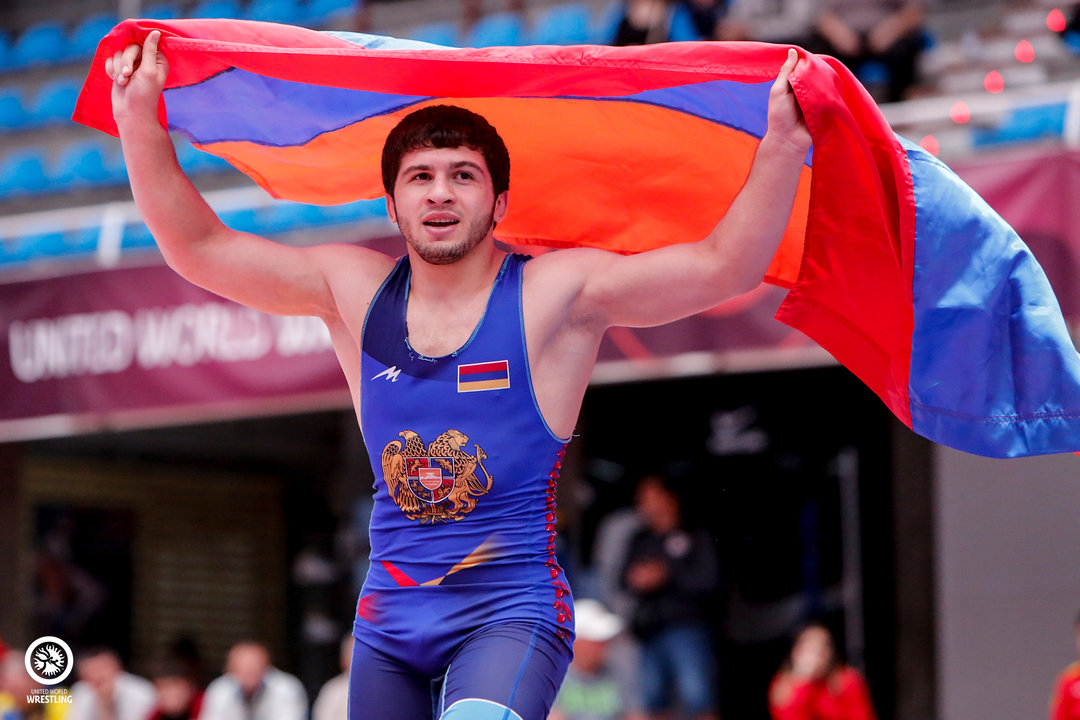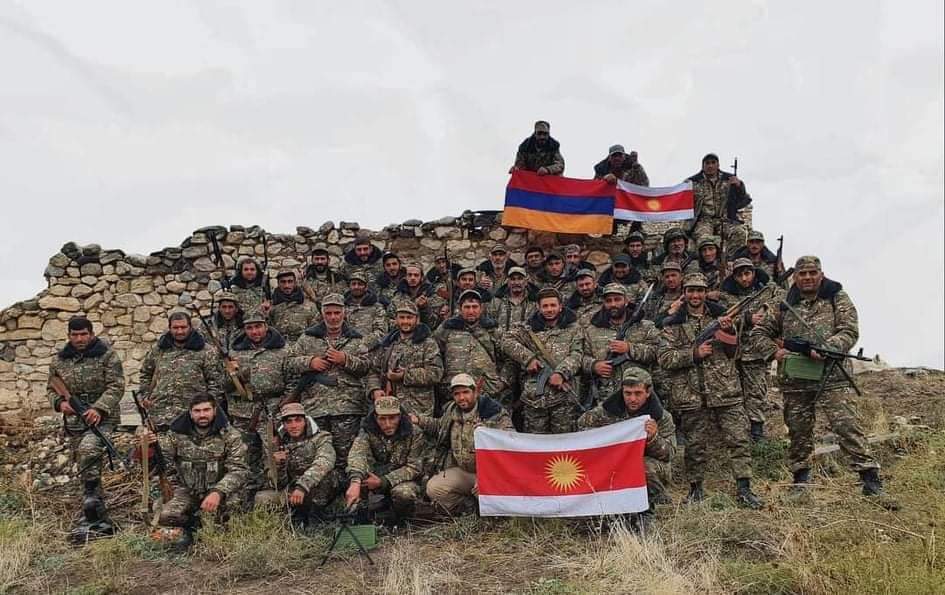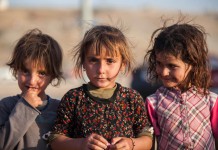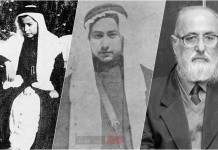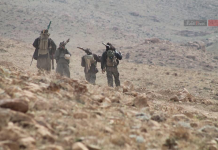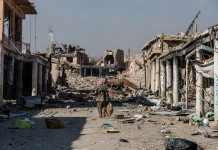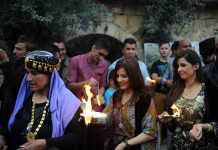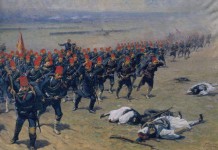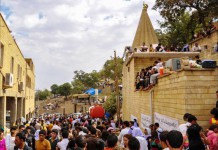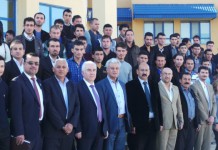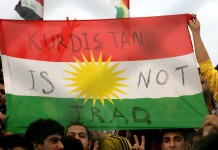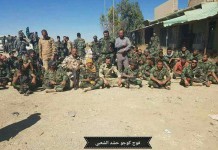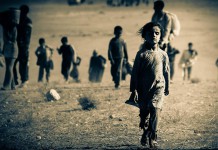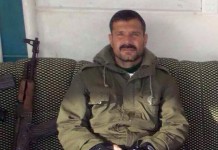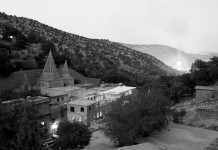Shingal. The Kurdish PKK will withdraw its forces from the northern Iraqi Shingal region, the PKK’s umbrella organization, the KCK, announced in a statement issued on Friday. The withdrawal comes amid renewed threats by the Turkish government which has threatened to take military action against the PKK in Shingal. The announced withdrawal will result in fundamental changes on the ground.
Background story
Representatives of the Iraqi military and the Ministry of Defense had met with PKK officials on several occasions in Shingal’s Khanasor town for negotiations. In contrast to the KDP in northern Iraq’s Kurdistan Region, which is a rival party to the PKK, the Iraqi government had loudly protested against Turkey’s ongoing military operation against the PKK in northern Iraq. To prevent a similar scenario in Shingal, the Iraqi government had put pressure on the PKK leadership to withdraw its fighters from Shingal.
The PKK set foot in Shingal in December 2014 after its forces and YPG fighters had rushed to save Yezidi civilians threatened by the Islamic State’s onslaught on the region, rescuing tens of thousands of people who were trapped in the mountains. The PKK was, despite the lack of support by the international anti-IS coalition, the strongest force in Shingal. They had virtually single-handedly taken large parts of Shingal’s western and southern region and engaged in a bloody urban war with IS in Shingal city. At the same time, they were establishing the YBŞ, a self-defense force composed of Yezidi locals which today counts around 1,500 fighters. Yezidis were supposed to be put in a position to defend themselves.
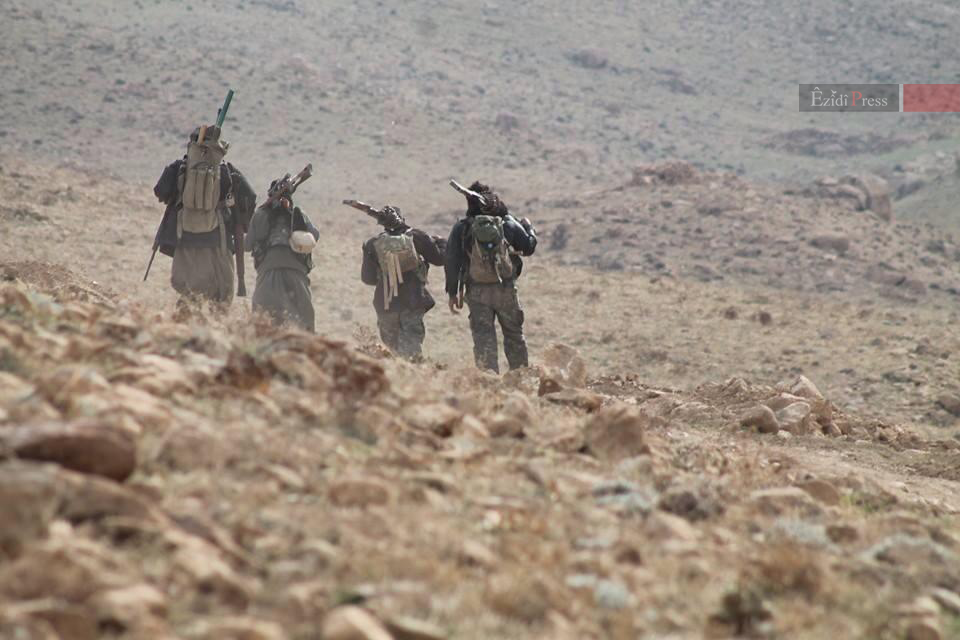
Turkey said it would prevent the PKK from “turning Shingal into a second Qandil”, referring to the Qandil mountains near Erbil where the PKK’s bases are located at. First air strikes on YBŞ and PKK positions in Shingal had already occurred in April 2017, Turkey’s threats could therefore no longer be taken as empty threats – especially not by the Iraqi side which sees Turkey’s moves as a threat to its territorial integrity.
The consequences
In fact, the PKK could have risked an open military conflict with Turkey in Shingal. Its umbrella organization, the KCK, however said they were still responsible for the security of Yezidis and would withdraw for the benefit of civilians. Their withdrawal prevents a direct confrontation with Turkish ground forces and their proxies and also protects Yezidis from a new war which would plunge the region deeper into chaos.
The PKK withdrawal also hinders the KDP’s return to the Shingal region. In case of a Turkish offensive, the KDP, which over the years has developed close ties to Turkey, would have probably seen its comeback in Shingal. Their Peshmerga militias were expelled from the region following the Iraqi offensive in November 2017. The KDP today virtually lacks every access to the region, despite having Shingal declared part of its dominion.
The PKK controlled areas in Shingal will be handed over to the Iraqi government. Both parties had reached an agreement to this effect during the negotiations in Khanasor.
Not only the KDP will be upset about this agreement but also the Sunni-Arab tribes who had been trained by Turkey in Bashiqa and had hoped to receive support in case of a Turkish offensive in order to capture the Shingal region as well as Tal Afar and Baaj.
The handover of those territories to the Iraqi central government will also bring greater stability to the Yezidi area which is still lying in ruins. Although only a few Yezidis might trust the Iraqi government, the absence of another party will contribute to ease the political situation on the ground, increasing the chance to reach an unification of the various Yezidi militias and parties.
Future of the YBŞ
With the withdrawal of the PKK, Turkey will loose its basis of argumentation for a potential invasion of Shingal. Following the withdrawal, however, Turkey, as in Afrin, will be expected to declare the YBŞ an extended arm of the PKK, claiming the YBŞ will continue to function as a PKK affiliate. This narrative is deceptive. A precondition for the PKK’s withdrawal was the YBŞ’s recognition as a Yezidi militia and its incorporation into the Iraqi security forces by the Iraqi central government, according to an ÊzîdîPress correspondent from Shingal. The Iraqi government had pushed for this move.
The YBŞ will operate under Iraqi command and continue to guard its areas in the west of the region as part of the Iraqi police and security forces. However, the exact extent of this incorporation into the Iraqi security apparatus is not known yet. In recent months, the Iraqi central government has sought to unify the various Yezidi units (HPÊ, YBŞ, Hashd, former Peshmerga) and place them under Iraqi command.
It is to be assumed that, in the long term, both the YBŞ and Yezidi Hashd will be dissolved and incorporated into the Iraqi army. Neither the YBŞ nor other Yezidi militias will be disarmed – a lesson which Yezidis had to painfully learn with the Peshmerga’s and Iraqi army’s collapse amid the Islamic State’s onslaught on Shingal.
The reactions

Yezidi officials, including pro-PKK officials, expressed positive opinions on the PKK’s decision. Saib Khidir, a Yezidi lawyer working with the Iraqi government in Baghdad at the highest level, described the PKK’s move as a “wise and correct decision”.
Bashiqa-based Yezidi activist Muhannad Sinjari said the PKK’s decision was “not a retreat but a win”. “The decision to withdraw for the benefit of the Yezidis is a victory, courageous and no less proud than the moment they entered Shingal to rescue thousands of families besieged in the Shingal mountains. The generations to come will remember their heroic deeds and humanitarian aid.”
© ÊzîdîPress 25th March, 2018

